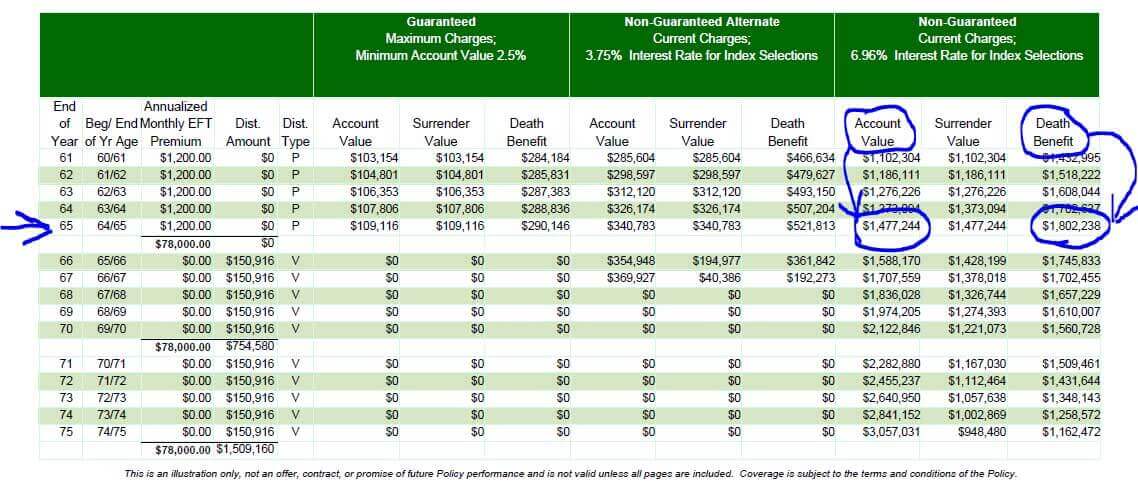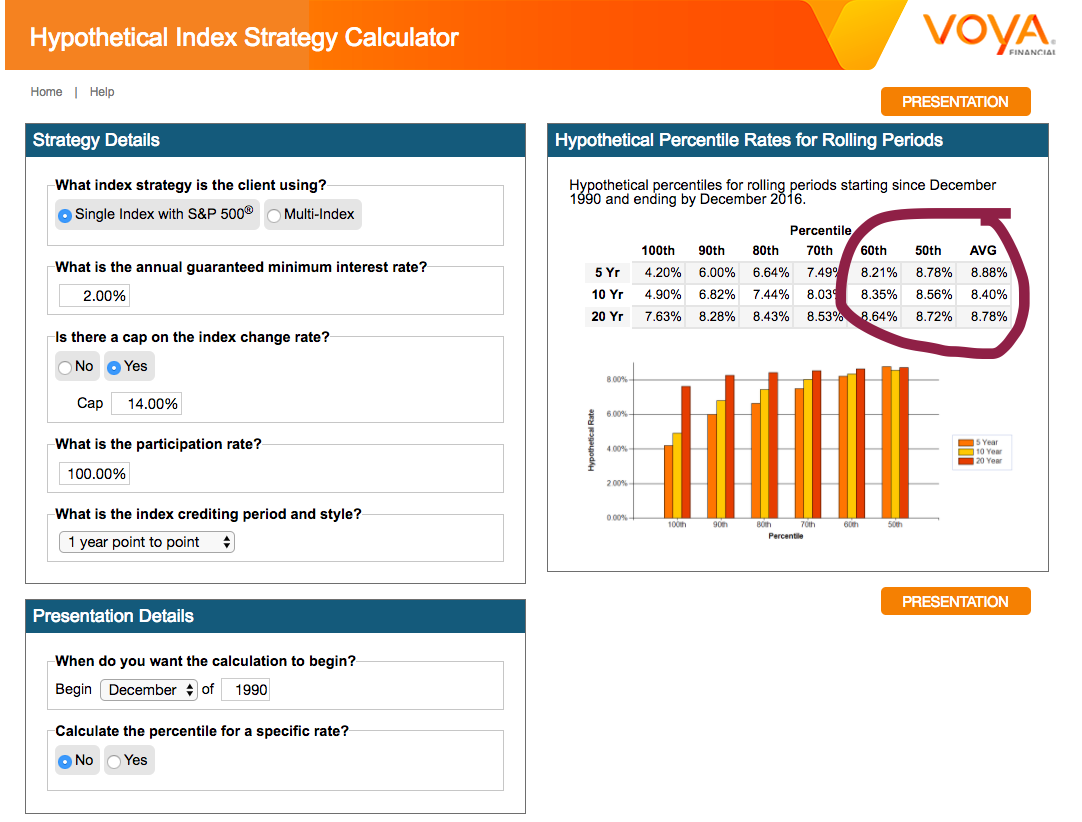All Categories
Featured
Table of Contents
Do they contrast the IUL to something like the Lead Overall Stock Market Fund Admiral Shares with no tons, an expense proportion (EMERGENCY ROOM) of 5 basis factors, a turn over proportion of 4.3%, and an outstanding tax-efficient record of circulations? No, they contrast it to some terrible actively taken care of fund with an 8% load, a 2% EMERGENCY ROOM, an 80% turnover ratio, and an awful record of temporary resources gain circulations.
Mutual funds often make yearly taxed distributions to fund owners, also when the value of their fund has decreased in value. Common funds not just require revenue coverage (and the resulting yearly taxes) when the common fund is rising in worth, but can also impose earnings tax obligations in a year when the fund has actually decreased in worth.
You can tax-manage the fund, collecting losses and gains in order to minimize taxed distributions to the capitalists, but that isn't in some way going to alter the reported return of the fund. The ownership of common funds might call for the common fund proprietor to pay projected taxes (is iul insurance a good investment).

IULs are easy to place to ensure that, at the owner's death, the recipient is not subject to either income or inheritance tax. The very same tax obligation reduction techniques do not function nearly as well with common funds. There are numerous, usually costly, tax traps connected with the timed trading of common fund shares, catches that do not relate to indexed life Insurance coverage.
Possibilities aren't extremely high that you're going to undergo the AMT as a result of your common fund distributions if you aren't without them. The remainder of this one is half-truths at ideal. While it is true that there is no income tax obligation due to your successors when they inherit the proceeds of your IUL policy, it is additionally real that there is no earnings tax due to your beneficiaries when they acquire a mutual fund in a taxable account from you.
Universal Term Life
There are far better ways to stay clear of estate tax obligation concerns than purchasing investments with low returns. Common funds might trigger revenue taxation of Social Safety and security benefits.

The development within the IUL is tax-deferred and might be taken as free of tax income via car loans. The plan proprietor (vs. the mutual fund manager) is in control of his or her reportable revenue, hence allowing them to reduce or perhaps eliminate the taxes of their Social Security benefits. This one is excellent.
Here's an additional marginal concern. It holds true if you purchase a common fund for claim $10 per share prior to the distribution date, and it disperses a $0.50 distribution, you are after that going to owe taxes (possibly 7-10 cents per share) despite the fact that you haven't yet had any kind of gains.
Yet in the end, it's actually regarding the after-tax return, not just how much you pay in tax obligations. You are going to pay even more in tax obligations by utilizing a taxable account than if you get life insurance. You're likewise most likely going to have more cash after paying those tax obligations. The record-keeping requirements for possessing common funds are significantly extra intricate.
With an IUL, one's documents are kept by the insurance business, copies of yearly declarations are sent by mail to the proprietor, and distributions (if any kind of) are completed and reported at year end. This set is additionally type of silly. Obviously you must keep your tax obligation documents in case of an audit.
No Lapse Life Insurance
Barely a factor to purchase life insurance coverage. Shared funds are commonly component of a decedent's probated estate.
Furthermore, they go through the delays and costs of probate. The proceeds of the IUL plan, on the other hand, is constantly a non-probate distribution that passes outside of probate directly to one's named recipients, and is consequently not subject to one's posthumous creditors, unwanted public disclosure, or comparable delays and prices.
We covered this one under # 7, but simply to wrap up, if you have a taxed common fund account, you must put it in a revocable depend on (or perhaps easier, make use of the Transfer on Death classification) in order to stay clear of probate. Medicaid incompetency and life time income. An IUL can offer their owners with a stream of income for their whole lifetime, no matter of how long they live.

This is useful when arranging one's events, and converting assets to income before an assisted living facility confinement. Shared funds can not be transformed in a similar manner, and are practically constantly thought about countable Medicaid assets. This is one more foolish one supporting that bad individuals (you recognize, the ones who require Medicaid, a government program for the bad, to spend for their nursing home) ought to utilize IUL rather than shared funds.
Cheap Universal Life Insurance Rates
And life insurance looks horrible when contrasted relatively versus a retired life account. Second, people who have cash to buy IUL over and past their pension are going to have to be awful at managing cash in order to ever qualify for Medicaid to spend for their retirement home prices.
Chronic and terminal disease biker. All plans will enable an owner's simple access to money from their plan, typically forgoing any type of abandonment fines when such people experience a serious disease, need at-home care, or end up being restricted to an assisted living home. Shared funds do not supply a similar waiver when contingent deferred sales charges still relate to a mutual fund account whose owner needs to offer some shares to fund the costs of such a keep.
New York Life Universal Life
You get to pay even more for that benefit (cyclist) with an insurance plan. Indexed universal life insurance provides death benefits to the beneficiaries of the IUL proprietors, and neither the owner nor the beneficiary can ever lose money due to a down market.
I definitely don't need one after I get to monetary freedom. Do I want one? On standard, a purchaser of life insurance pays for the real price of the life insurance policy advantage, plus the expenses of the plan, plus the profits of the insurance policy business.
Iul Explained
I'm not completely sure why Mr. Morais included the entire "you can't lose cash" once again below as it was covered fairly well in # 1. He just desired to repeat the most effective selling factor for these points I suppose. Again, you don't shed nominal dollars, however you can lose genuine dollars, along with face significant opportunity expense due to reduced returns.

An indexed global life insurance policy owner might exchange their plan for a totally different policy without causing income tax obligations. A common fund owner can stagnate funds from one mutual fund company to an additional without selling his shares at the previous (thus activating a taxable event), and repurchasing new shares at the latter, typically subject to sales charges at both.
While it is real that you can trade one insurance plan for one more, the reason that individuals do this is that the very first one is such a terrible plan that even after purchasing a brand-new one and going via the early, adverse return years, you'll still come out in advance. If they were sold the right policy the initial time, they shouldn't have any type of desire to ever trade it and experience the very early, adverse return years once more.
Latest Posts
Best Indexed Universal Life Insurance Policies
Group Universal Life Insurance
Variable Universal Life Insurance Quotes